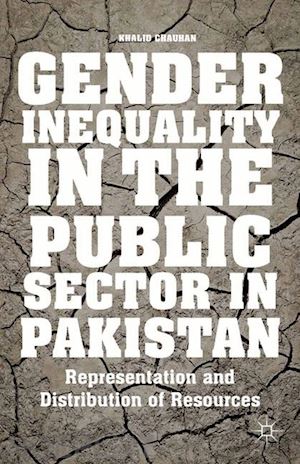Contents Acknowledgements Abstract Tables Boxes, Map and Appendices Abbreviations PART I: INTRODUCTION 1. Introduction 2. Research Issues 3. Issue of Representation 4. Access to Resources 5. Institutional Practices 6. Book Questions 7. Scope of the Book 8. Methodology 9. Data Collection and Analysis 10. Limitations of the Study 11. Organisation of the Book PART II: GENDER AND DEVELOPMENT 12. Introduction 13. Women in Development: The Politics of Integration 14. Power Neutrality 15. Women and Development: The Politics of Recognition and Access 16. Power Partiality and Materiality 17. Gender and Development: The Politics of Transformation 18. Constraints to Transformation 19. Patriarchy 20. The Political Use of Notion of Sexuality 21. State as the Rule Setter 22. Occupational Closure 23. Religion and Region 24. Some Approaches to Break the Patriarchal Trap 25. Empowerment through Credit Facilitation, not Justice 26. Need for Institutional Reforms 27. Conclusion PART III: FROM GENDER MAINSTREAMING TO TRAINING 28. Mainstreaming as a Concept 29. Training as an Approach 30. Knowledge as a Tool 31. Knowledge Transfer Sessions 32. Training: Missing Socio-political Context 33. Training: Missing Organisational Context 34. Conclusion PART IV: PATRIARCHAL PAKISTAN-WOMEN'S REPRESENTATION, ACCESS TO RESOURCES AND INSTITUTIONAL PRACTICES 35. Introduction 36. Women's Representation 37. The State and the Policies of Representation of Women 38. The Political and Historical Context of Women's Under-representation 39. The Issue of Women's Access to Resources 40. The Social Connection in Access to Resources 41. Access to Education 42. Low Demand for and Poor Supply of Education 43. Demand and Supply of Education in Azad Jammu and Kashmir 44. Access to Education beyond Demand and Supply 45. The Issue of Public Sector Policies and Practices in Pakistan 46. Sexual Harassment in the Workplace 47. The United Nations Development Program 48. Conclusion PART V: THE RESULTS: ECHOES OF PATRIARCHAL BENOVELACE, FIERCE RESISTANCE TO EQUALITY AND INSTITUTIONAL INERTIA 49. Introduction 50. Attitudes towards Representation of Women in the Public Sector 51. Attitudes towards Representation: Role of Socio-political Context 52. Attitudes towards Representation: Role of Organisation 53. Attitudes towards Extent of Quotas: Role of Training in Level of Employees 54. Attitudes towards Access to Resources 55. Attitudes towards Identification of Changes Needed: Influence of Training on 56. Cases of Discrimination Processed: Role of Gender 57. Sexual Harassment in the Public Sector: Role of Organisations PART VI: GENDER INEQUALITY: THE EFFECT OF PATRIARCHY 58. Introduction 59. Representation of Women PART VII: CONCLUSION References Appendices











